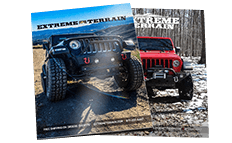

How to Install a K&N 57 Series FIPK Performance Intake on your 2007-2011 Jeep Wrangler JK
Installation Time
1 hours
Tools Required
- Flat blade screw driver
- Ratchet
- Extension
- 15mm socket
- 10mm socket
- 4mm allen wrench

Shop Parts in this Guide
Parts List
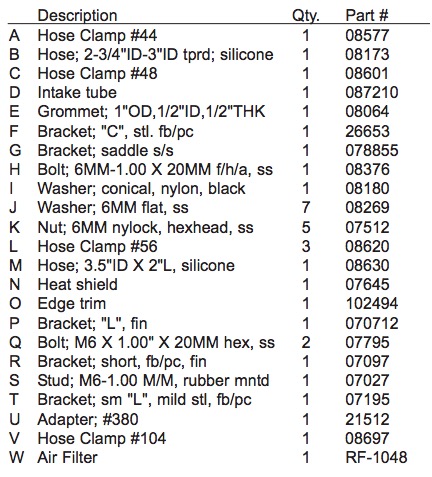
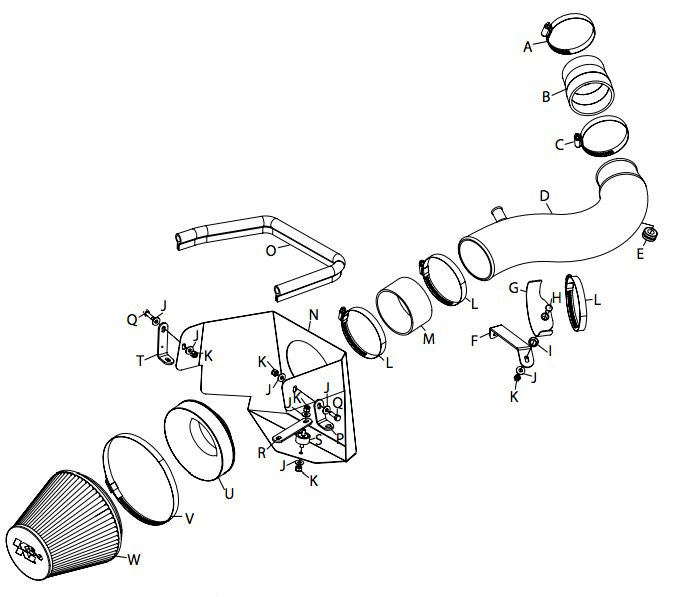
NOTE: This kit was not designed to fit vehicles with a body lift.
NOTE: FAILURE TO FOLLOW INSTALLATION INSTRUCTIONS AND NOT USING THE PROVIDED HARDWARE MAY DAMAGE THE INTAKE TUBE, THROTTLE BODY AND ENGINE.
TO START:
1. Turn the ignition OFF and disconnect the vehicle's negative battery cable.
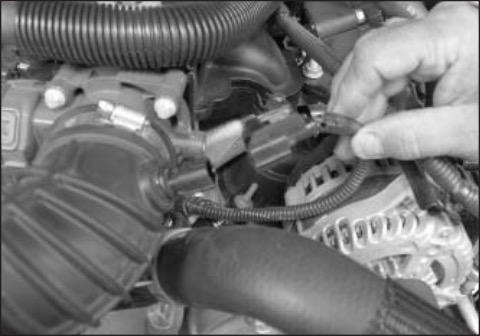
2. Release the locking tab on the air temperature sensor electrical connector and then disconnect the connection
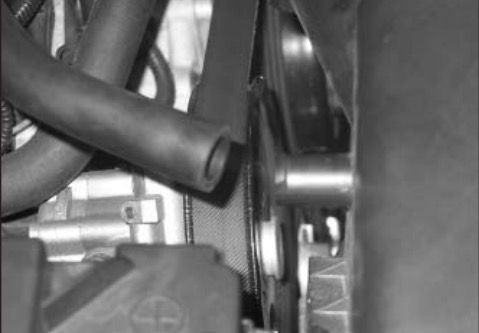
3. Disconnect the crank case vent hose from the stock intake tube as shown.
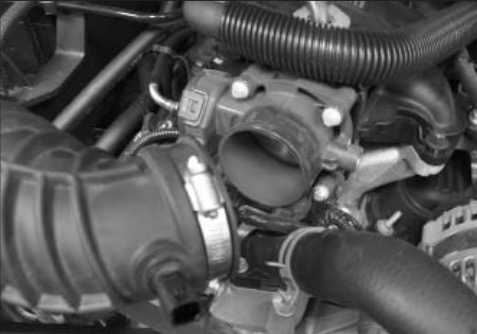
4. Loosen the hose clamp that secures the stock intake tube to the throttle body and then disconnect the intake tube from the throttle body.
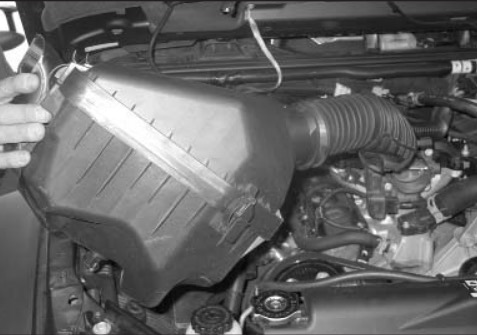
5. Lift up the air box assembly to dislodge it from the mounting grommets and then remove the complete assembly from the vehicle.
NOTE: K&N recommends that customers do not discard factory air intake.
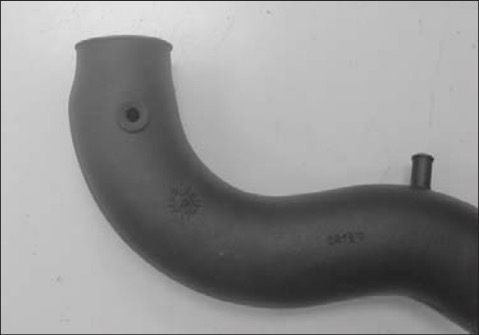
6. Install the supplied grommet into the hole in the K&N intake tube as shown.
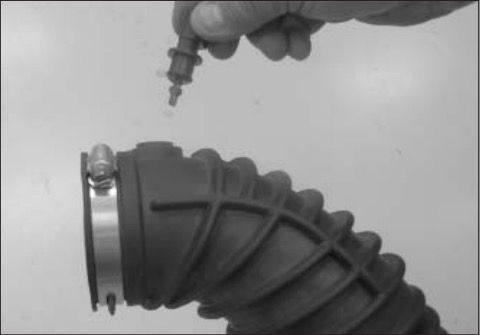
7. Remove the air temperature sensor from the stock intake tube as shown.
NOTE: Take care when handling the air temperature sensor as it is very fragile.
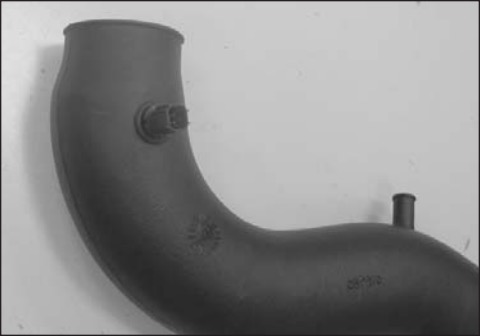
8. Install the air temperature sensor into the grommet installed into the K&N intake tube during step #6.
NOTE: Take care when handling the air temperature sensor as it is very fragile.
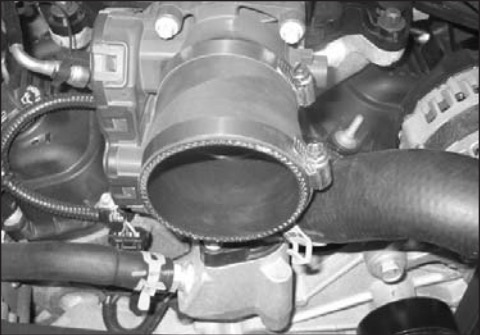
9. Install the supplied silicone hose (08173) onto the throttle body and secure with the supplied hose clamp.
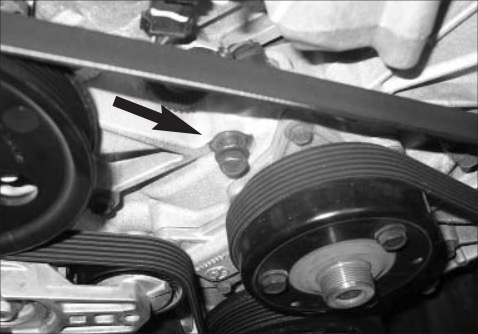
10. Remove the front engine bolt shown.
NOTE: This bolt will be reused.
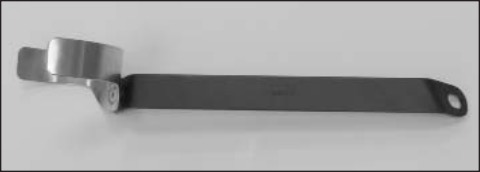
11. Install the saddle bracket provided onto the tube mounting bracket (26653) and secure with the provided hardware.
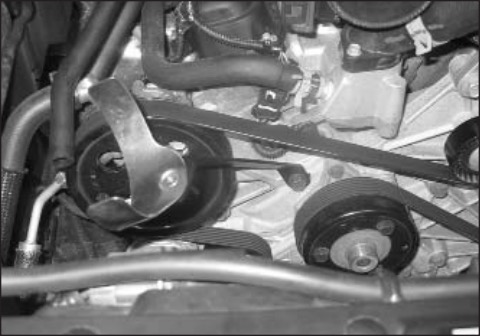
12. Install the tube mounting bracket assembly onto the engine and secure with the bolt removed in step #10.
NOTE: Be sure the bracket sits flush to the engine.
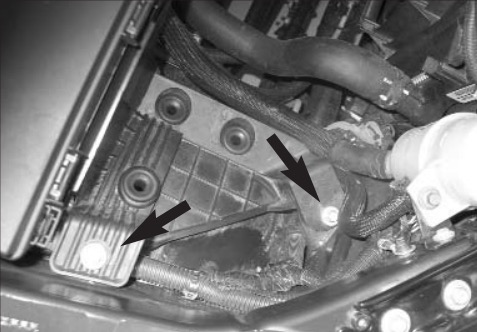
13.Remove the power steering reservoir mounting bolt and the two air box bracket mounting bolts shown.
NOTE: These bolts will be reused.
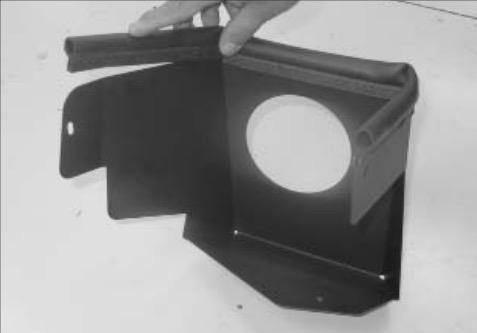
14. Install the supplied edge trim onto the heat shield as shown.
NOTE: Some trimming of the edge trim may be necessary.
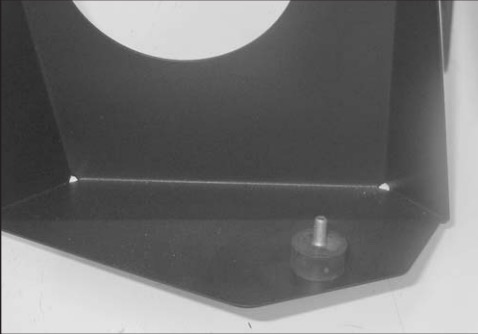
15. Install the supplied rubber mounted stud onto the heat shield with the provided hardware as shown.
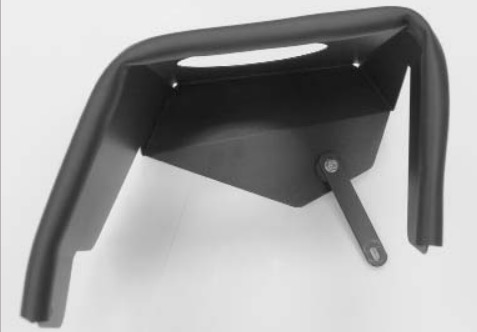
16. Install the supplied bracket (07097) onto the rubber mounted stud as shown.
NOTE: Do not completely tighten at this time.
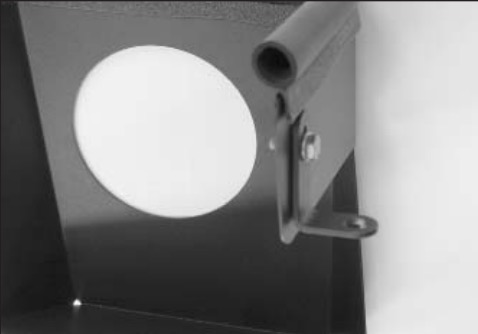
17. Install the supplied “L” bracket (070712) onto the heat shield as shown with the provided hardware.
NOTE: The bracket should be installed on the outside of the heat shield with the “L” portion pointing towards the outside of the heat shield.
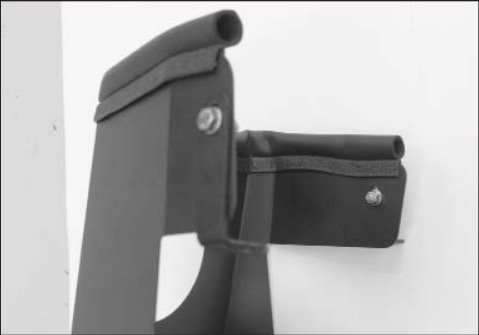
18. Install the supplied “L” bracket (07195) onto the heat shield as shown with the provided hardware.
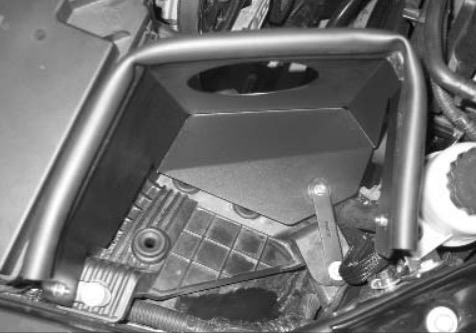
19. Install the heat shield assembly into the engine compartment and secure with the three bolts removed in step #12.
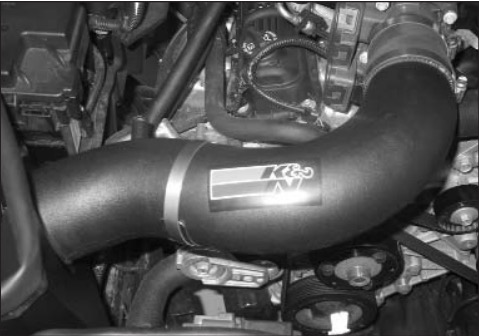
20. Insert the K&N intake tube into the silicone hose at the throttle body and align with the mounting bracket installed in step #12 and then secure with the hose clamps provided.
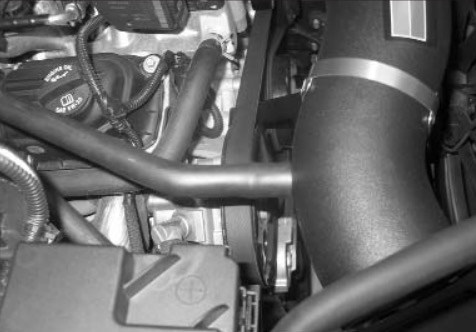
21. Connect the crank case vent hose to the K&N intake tube.
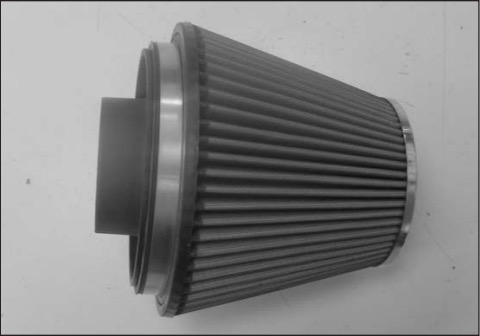
22. Install the air filter adapter into the K&N air filter and secure with provided hose clamp.
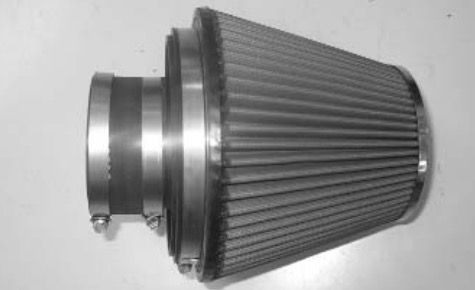
23. Install the silicone hose (08630) onto the air filter adapter and secure with the provided hose clamp.
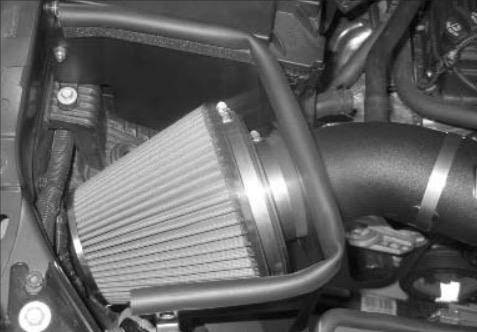
24. Install the K&N air filter assembly on the K&N intake tube and secure with the provided hose clamp as shown.
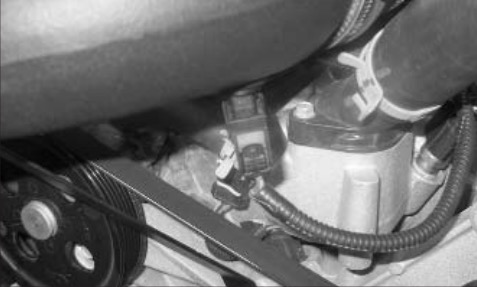
25. Reconnect the air temperature sensor electrical connection.
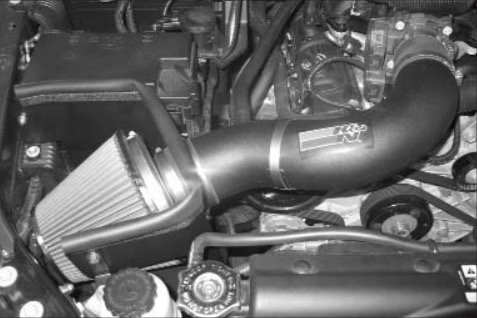
26. Reconnect the vehicle's negative battery cable. Double check to make sure everything is tight and properly positioned before starting the vehicle.
27. The C.A.R.B. exemption sticker, (attached), must be visible under the hood so that an emissions inspector can see it when the vehicle is required to be tested for emissions. California requires testing every two years, other states may vary.
28. It will be necessary for all FIPK’s to be checked periodically for realignment, clearance and tightening of all connections. Failure to follow the above instructions or proper maintenance may void warranty.
ROAD TESTING:
1. Start the engine with the transmission in neutral or park, and the parking brake engaged. Listen for air leaks or odd noises. For air leaks secure hoses and connections. For odd noises, find cause and repair before proceeding. This kit will function identically to the factory system except for being louder and much more responsive.
2. Test drive the vehicle. Listen for odd noises or rattles and fix as necessary.
3. If road test is fine, you can now enjoy the added power and performance from your kit.
4. K&N suggests checking the air filter element periodically for excessive dirt build-up. When the element becomes covered in dirt (or once a year), service it according to the instructions on the Recharger service kit, part number 99- 5050 or 99-5000.
